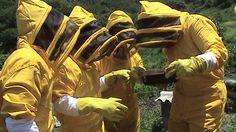
Environment and Biodiversity
Place
Colombia
Sponsor
Manuel Barrera Medina
Grant(s)
100 000 € to the Selection Committee at 2007/10/02
Project leader
"This is a genuine patronage project, visible, engaged, and in cooperation with the UN, the Colombian government and the distribution circuit of the Carrefour stores. By backing it, the Veolia foundation participates in projects for substitute crops for coca, while fulfilling its environmental commitment."
Manuel Barrera Medina
In Colombia, even though many farm communities depend exclusively on the illegal growing of coca to guarantee their subsistence, not all the peasants actually involved get much benefit. Far from it. Indebted to buy the seeds and the necessary equipment, they are then racketed by the FARC*. They are left just enough to sustain life and limb. Contrary to a widespread idea, this drug trafficking and criminality hinders social and economic development much more than it helps.
Moreover, coca growing brings dramatic repercussions for the environment. One demand of the United States was the burning of the coca plants by aerial fumigation. Thousands of hectares of land hence went up in smoke in the last several years, causing the slow death of the forest. Many peasants therefore want to return to a legal economy provided they receive help to start out and are guaranteed to receive the fruits of their labor.
Bees to seize the land from the coca plants
The UNODC, the United Nations Office for Fighting Against Drugs and Crimes, has set up a program for 50 forest warden families of the Cordoba area. The aim is to offer them professional and social reintegration while providing the possibility to produce honey instead of coca.
In concrete terms, each family receives 20 hives and theoretical and practical training in apiculture, personalized by the Social Action services of the Colombian Government and UNODC specialists. The program is scheduled over one year. Production, without using any agrochemicals, is then guaranteed by a rigorous selection of the queen bees. Business development, marketing, packing, basic administration and quality certification for the product will be handled by the peasants' cooperative Redecolsierra which already works on a major apiculture product in the country. To complete the project, the store distribution circuit is already guaranteed, thanks to a partnership with Carrefour Colombie. The peasants are thereby guaranteed to receive their income.
*FARC: Forces Armées Révolutionnaires de Colombie.

